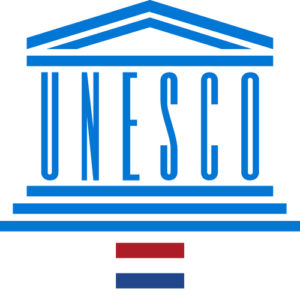Genossenschaften have been put on the list Intangible Cultural Heritage of Humanity despite the negative advice of the Unesco Evaluation Body. Below the reasoning for accepting the nomination.
Decision of the Intergovernmental Committee: 11.COM 10.B.14
The Committee
- Takes note that Germany has nominated Idea and practice of organizing shared interests in cooperatives (No. 01200) for inscription on the Representative List of the Intangible Cultural Heritage of Humanity:
A cooperative is an association of volunteers that provides services of a social, cultural or economic nature to members of the community to help improve living standards, overcome shared challenges and promote positive change. Based on the subsidiarity principle that puts personal responsibility above state action, cooperatives allow for community building through shared interests and values creating innovative solutions to societal problems, from generating employment and assisting seniors to urban revitalization and renewable energy projects. Anyone can participate, with members also able to acquire shares in the association and have a say in its future direction. The system makes available low-interest loans to farmers, craftspeople and entrepreneurs. Today, about a quarter of Germany’s population are members of a cooperative, which besides farmers and craftspeople, includes 90 per cent of its bakers and butchers and 75 per cent of its retailers. Some cooperatives have also been set up specifically for students to gain experience. Associated knowledge and skills are transmitted by cooperatives, universities, the German Cooperative and Raiffeisen Confederation, the Akademie Deutscher Genossenschaften, the German Hermann-Schulze-Delitzsch Society and the German Friedrich-Wilhelm-Raiffeisen Society.
- Decides that, from the information included in the file, the nomination satisfies the following criteria:
R.1: The idea and practice of pursuing shared interests in cooperatives has been handed down in Germany from generation to generation and constitutes intangible cultural heritage as defined in Article 2 of the Convention. While collaboration through cooperatives is a worldwide phenomenon, specific characteristics of the community in Germany have been highlighted in the nomination. Mutual respect, equality and solidarity between the bearers are guaranteed by law, resulting from the initiative of the community. Social and cultural purposes are prominent among the shared interests pursued through cooperatives. Throughout Germany, two large associations of volunteers jointly promote the transmission of knowledge and the social practice. All practitioners of the element identify with this community in social, cultural and economic terms;
R.2: The element’s inscription will contribute to ensuring visibility and awareness of intangible cultural heritage because the large number of bearers and practitioners in Germany will act as multipliers in various domains of daily life like education and culture, house building and renting, agriculture, skilled crafts, transport, credit system etc. Due to its effectiveness in satisfying existential needs, the element clearly shows the part played by intangible cultural heritage in ensuring social cohesion and sustainable development. Inscription will also encourage dialogue among communities with similar cooperative organizations, and the promotion of certain values, such as solidarity;
R.3: The viability of the element is being ensured by initiatives carried out by the German Hermann-Schulze-Delitzsch Society and the German Friedrich-Wilhelm-Raiffeisen Society, with the support of the submitting State. New safeguarding measures are proposed such as public relations campaigns, competitions, work in schools on the topic of cooperatives, and a cross-border thematic cultural hiking trail. The file recognizes that the element could be decontextualized by legal frameworks that undermine its basic principles and that ongoing negotiations in this respect are necessary. German development cooperation promotes the element in other countries as a response to societal challenges only if and where local partners express such a need and in strict compliance with national laws and regulations of the countries concerned;
R.4: The file was prepared with the cooperation of representatives of the German Hermann‑Schulze-Delitzsch Society and the German Friedrich-Wilhelm-Raiffeisen Society. The file presents letters expressing the free, prior and informed consent of these two representative institutions. The broad-based consultation with the variety of stakeholders of the element has been carried out in an extensive participatory process of national inventorying (2013). Support for the element’s nomination for inscription on the Representative List of the Intangible Cultural Heritage of Humanity was confirmed via the public media and through internal communication processes within the cooperatives;
R.5: The file presents a relevant extract of inscription of the element on the German Inventory of Intangible Cultural Heritage in 2014. Traditional bearers, communities and non-governmental organizations were involved in the inscription process. The inventory is organized, maintained and updated by the German National Commission for UNESCO.
- Inscribes Idea and practice of organizing shared interests in cooperatives on the Representative List of the Intangible Cultural Heritage of Humanity;
Thanks the delegation of Germany for the clarifications provided to the Committee on the information included in the file concerning criteria R.1, R.2, R.3 and R.4.

 Foundation Journey of the Razzia (Reis van de Razzia) has put forward a proposal to list the Co-operative Movement of the Netherlands on the National Inventory of Intangible Cultural Heritage.
Foundation Journey of the Razzia (Reis van de Razzia) has put forward a proposal to list the Co-operative Movement of the Netherlands on the National Inventory of Intangible Cultural Heritage.